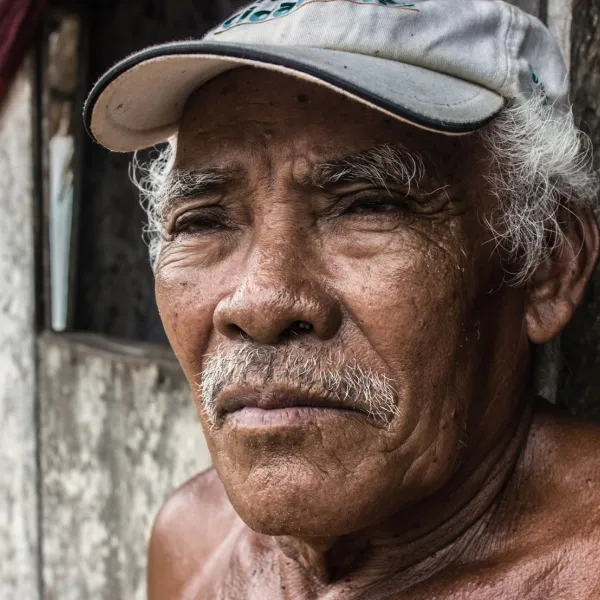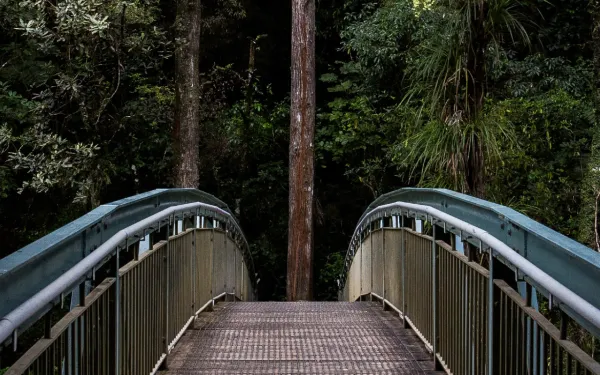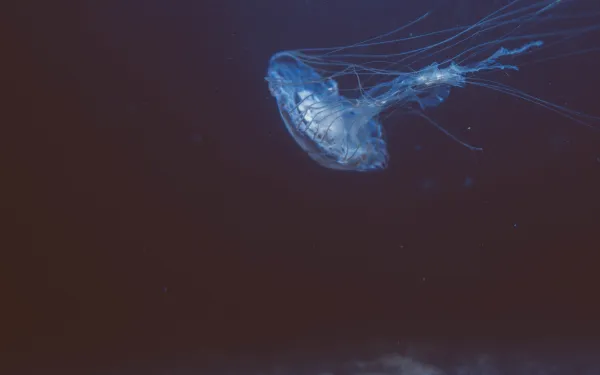
Project
Photo: Maíra Irigaray / Amazon WatchHolding Brazil accountable for the Belo Monte Dam
When fully operational, Belo Monte will be the third-largest dam in the world, constructed in one of the most important ecosystems on the planet: the Amazon rainforest. It sits on the Xingu River in Pará, a state in northern Brazil. The reservoir will cover 500 square kilometers of forest and farmland—an area the size of Chicago.
For the people of the Xingu, construction of Belo Monte has meant loss of access to water, food, housing, work and transportation. At least 20,000 people have been displaced.
The government and construction consortium began to construct the dam without first consulting the people of the region, many of whom are indigenous. They flouted international human rights law, which requires the free, prior and informed consent of affected indigenous communities. Brazil also failed to comply with precautionary measures issued by the Inter-American Human Rights Commission, which were intended to protect the life, health, and integrity of local communities.
Though Belo Monte began operations in May 2016, it is not yet operating at full capacity. In April 2016, a federal court suspended the dam's operating license because the consortium in charge did not complete basic sanitation works in Altamira, the city nearest to and most affected by the dam.
Partners:

Related projects

The IPCC's Sixth Report: the stark reality we must face with agency and hope
“Adults keep saying: “We owe it to the young people to give them hope.” But I don’t want your hope. I don’t want you to be hopeful. I want you to panic. I want you to feel the fear I feel every day. And then I want you to act”. - Greta Thumberg, addressing the World Economic Forum in January 2019. The Intergovernmental Panel on Climate Change’s (IPCC) Sixth Assessment Report confirmed what we’ve all feared. With more refined scientific evidence than ever before, the report warns that climate change is intensifying, affecting all regions of the planet. Humanity's influence on this imbalance is now referred to as "unequivocal." As such, there’s no doubt that it’s our responsibility to confront the problem. Recent and aggressive climate events demonstrate that the world is transitioning from mere warnings to real, apocalyptic experiences. The Panel is not exaggerating. Over the last few months, floods have killed hundreds of people in some of the richest countries on the planet, and fires have ravaged thousands of hectares across the globe. Despite all this, there is still hope! And hope is our main ally in changing course. The report projected five scenarios, from the least to the most ambitious, according to the mitigation measures that humanity could implement. All of them, even the most ambitious, result in exceeding the 1.5 °C average temperature of the planet by 2040. Despite the starkness of that forecast, the report also shows that, by taking aggressive action to reduce greenhouse gas emissions, we could stabilize the increase at 1.4°C by 2100. The battle is not over, let alone lost. The most important consequences of this planetary imbalance are still uncertain and are being played out in the field. So what’s next? Drastic reductions of greenhouse gases will only be possible with systemic changes at the government and corporate levels. We also need to adjust our narratives so as to not fall into defeatism and hopelessness, because there is no scientific evidence to support surrender. Nor should we allow the environmental movement to become divided; we must be alert to the campaigns of fear and diversion practiced by our opponents. Hopelessness, defeatism and the division of our voices are precisely the winning cards of those who resist change. Given the global context, what follows are some necessary and urgent actions that will allow us to advance toward the future we need: Aiming for a rapid and just energy transition that respects human rights and includes a gender focus; as well as a new type of development that does not bulldoze nature, but cherishes and respects it. These changes should not produce fear. The technology to generate energy with minimal emissions and environmental impacts exists, is proven, and has greater potential to create jobs than the fossil fuel industry. A world powered by clean, renewable energy is a fairer, greener world. Holding the industries and companies that drive our economy accountable for what their activities leave behind. The subsidy nature has paid in the name of economic development has already exceeded what is reasonable. Projects that impact the environment, that attack the balance of nature, are no longer viable. The institutional framework and the principles of national and international law that protect the environment and human rights are on our side. We must interpret and use them for what they are: sources of binding and obligatory law. Ensuring the protection of natural sites that have not yet been disturbed, especially those of high environmental value. Nature has the capacity to regenerate and heal itself, but we must give it a chance. Indigenous and traditional peoples, guardians of their forests and territories, play a key role in this. Advocating for the correct use of climate funds at the international level, ensuring that they work toward climate justice and not false solutions that do more harm than the disease itself. National and international financial institutions move huge amounts of money each year to address climate change. Funds for mitigation and adaptation are available and projects to be financed must comply with environmental and social safeguards. The monetary cost of not acting or not acting enough is much higher than the cost of taking immediate, effective and decisive action. Being strategic and relying on science to take advantage of every mitigation opportunity. One example is the reduction of short-lived climate pollutants, which were specifically addressed in the recent IPCC report. These pollutants have historically lacked the attention they deserve, despite the incredible opportunity their mitigation implies. One of them is methane, whose presence in the environment is at an all-time high. Methane—the sources of which include coal mining, fracking, large dam reservoirs and intensive livestock farming—has 67 times more power than carbon dioxide (CO2) to warm the planet over a 20-year period, and its emissions cause almost 25% of that warming. Reducing these pollutants also means improving air quality in cities across the global. Achieving ambitious results in international negotiations and honoring the treaties that protect the planet, taking advantage of the strength we have when we act in coordination. It’s true that we have been attending UN conferences on climate change for 25 years without managing to reduce emissions, but it’s also true that we have an agreement signed by all member states that is binding and that orders each country to do its part to avoid exceeding the dangerous barriers of warming. Let us not dismiss what has been achieved; rather, let’s continue to build on it. We must demand these actions and not settle for less. We must be on alert to vote for leaders who have what it takes to lead us that way. Every small victory, every ton of CO2 that is kept in the ground, every natural space that is preserved, moves us away from the worst effects of this crisis. It's our turn, and nature must come first. We owe it to those who will inhabit this beautiful planet in the near and distant future.
Read more
A Guide for GCF Watch Coordinators
A publication for coordinators of GCF Watch, a civil society initiative from the global South aimed at improving monitoring of the Green Climate Fund (GCF), the world's leading multilateral climate finance institution. DOWNLOAD THE FULL GUIDEBasics of the Green Climate Fund (GCF)The Green Climate Fund (GCF) is the operating entity of the funding mechanism of the United Nations Framework Convention on Climate Change (UNFCCC). As such, it provides funding to developing countries for climate change mitigation and adaptation projects and programs.Read and downloadNational Designated Authorities and Green Climate Fund Focal PointsNational Designated Authorities (NDAs), Government institutions, and Focal Points (FPs) are responsible for all matters related to the Green Climate Fund (GCF) in developing countries. They represent the GCF and serve as a liaison or point of contact between the GCF and developing countries. Read and downloadFunding Proposals before the Green Climate FundProposals for project and program funding can be classified according to several criteria: type of access, public or private, amount of funds requested, and risk category.Read and downloadGuide to Reviewing a Funding Proposal before the Green Climate FundThe GCF Watch will consolidate all observations made by civil society before sending to the GCF Board. Your comments will be part of the message directly delivered to the Board!Read and downloadAccredited Entities before the Green Climate FundThe funding granted by the Green Climate Fund (GCF) is channeled through accredited entities (AEs), which are in charge of managing the resources and implementing the projects and programs. The AEs must ensure that projects and programs comply with GCF safeguards, as well as oversee compliance when implementation is the responsibility of executing entities.Read and downloadThe Independent Redress Mechanism (IRM)The Independent Redress Mechanism (IRM) was created to respond to complaints from individuals, groups or communities who feel that they have been adversely affected by projects or programs financed by the Green Climate Fund (GCF) due to non-compliance with its operational policies and procedures, including its environmental and social safeguards.Read and downloadGCF Watch: A Southern Civil Society-Led InitiativeThe platform aims to improve the monitoring of the operations of the GCF through collaboration between organizations working at the level of the GCF Board and organizations and communities in the region that are close to the territories where projects supported by the entity are implemented.Read and downloadGlossary of useful terms for monitoring the Green Climate FundRead and download
Read more
Reaction: IUCN Congress votes yes to a moratorium on deep-sea mining
Marseille, France - A motion calling for a moratorium on deep-sea mining was adopted with overwhelming support by the IUCN World Conservation Congress today. Among government and government agencies 81 voted for the moratorium with 18 against and 28 abstentions. Among NGOs and civil society organization the vote was 577 for, 32 against and 35 abstentions, sending a strong message to governments that there is global opposition to deep-sea mining. “We are very pleased to see so many governments, agencies and NGOs voting for a moratorium on deep-sea mining; the support has been overwhelming” said Matthew Gianni Co-Founder of the Deep Sea Conservation Coalition (DSCC). “Member countries of the ISA, including France which hosted this Congress, need to wake up and act on behalf of civil society and the environment now, and take action in support of a moratorium”. Scientists have warned that deep-sea mining will cause large-scale, irreversible biodiversity loss and ecosystem degradation if permitted to occur, particularly in the international areas of the world’s ocean. The International Seabed Authority (ISA), a multilateral regulatory body established under the UN Convention on the Law of the Sea in 1994, is debating whether to begin licensing commercial deep-sea mining in as little as two years. 167 countries plus the EU are members of the ISA. The German Environment Ministry, the government of Fiji and many other government agencies voted to support motion 069. Nauru has triggered a so-called Two Year rule at the ISA which it expects will result in the Authority issuing a commercial license to mine. 47 African countries have challenged the trigger and Sian Owen, Director of the DSCC says: "Hopefully the vote in Marseille will translate into a vote at the ISA to adopt a moratorium on deep sea mining." Motion 069 - Protection of deep-ocean ecosystems and biodiversity through a moratorium on seabed mining was sponsored by Fauna and Flora International and co-sponsored by Fundación MarViva (Costa Rica), Natural Resources Defense Council (USA), Sylvia Earle Alliance/Mission Blue (USA), Synchronicity Earth (UK), Wildlands Conservation Trust (South Africa), World Wide Fund for Nature – International. For further information Matthew Gianni, IUCN, 31 646 168 899 Sian Owen, IUCN, 31 648 502 659 Patricia Roy, 34 696 905 907
Read more